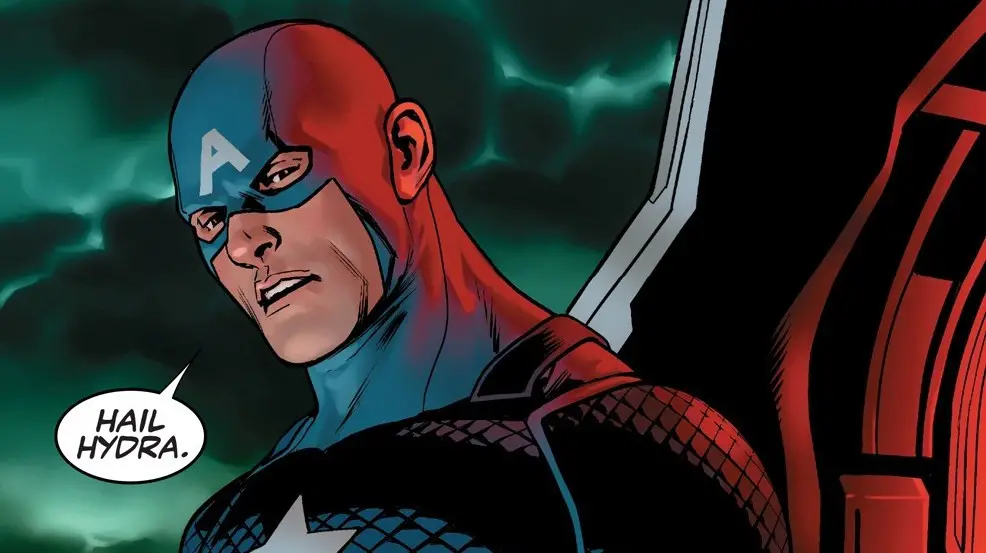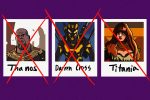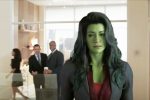Marvel’s Captain America has always stood up for the little guy.
Growing up as a small, disabled, Irish-Catholic boy in Brooklyn in the 1940s, Steve Rogers always stood for American ideals. His first issue, published in 1941, had a cover that featured Captain America punching Hitler in the face. But 1941 was before the US joined the war, and Cap’s Jewish creators, Joe Simon and Jack Kirby, risked a lot in making such a definitive statement against Hitler. Kirby and Simon were both harassed by American Nazis that camped in Long Island, though Kirby was ready to fight them.
And yet, although Jack Kirby himself said, “I don’t think Captain America could do anything wrong” Marvel’s newest “Captain America” series, released last Wednesday, spurns everything Kirby and Simon created Cap to stand for. The issue, which I read so you don’t have to, confirms that Steve Rogers is, and has always been, an agent of Hydra.
Even worse, in flashbacks juxtaposed against Captain America’s mission, it tells the story of how his mother met a Nazi and joined Hydra herself. The issue focuses on the theme of heroism, a typical message for a comic book. What you wouldn’t expect though, is that when Captain America’s narration reads, “We’re all trying to make a difference, trying to be heroes,” he’s talking about a Nazi suicide bomber.
In the same issue, when Captain America shows up with two other heroes dressed like American flags, they meet Zemo, who’s trying to make a new Hydra with his New Masters, three poor mercenaries. The entire scene is played for laughs, from the lizard man’s comment that he need to pay his “student loan debt” to Zemo’s muttering that he can’t believe he’s “starting all over again like this.”
What’s astounding is that these are Nazis Marvel is trying to make us laugh at! Needless to say, I wasn’t amused, but Marvel doesn’t seem to have realized just how insulting and disturbing this entire issue is.
In an interview with Tom Brevoort, the editor, it’s clear that he, at least, sees the political potential of this issue. In response to a question referencing Donald Trump, he responded, “We can talk about political issues in a metaphoric way. That’s what gives our stories weight and meat to them. Any parallels you have seen to situations real or imagined, living or dead, is probably intentional but metaphorically not literally.”
Brevoort is relying on Hydra, Marvel’s Nazi organization—as villains by default. In his view, by making Captain America a Nazi, he suggests that America isn’t great, and that even as we praise this country for its freedom and ideals, there is something truly rotten at its core.
What Brevoort fails to understand though, is that Nazis, despite having been defeated in World War II, aren’t considered villains by a disturbing number of people. Marvel feels comfortable humanizing their Hydra villains because they don’t believe it’s edgy and breaking down boundaries, but anti-Semitism is a very real and current issue.
In the spring of 2014, a man walked into the parking lot of the Overland Jewish Community Center in Kansas City and shot and killed a 69-year old man and his grandson with the aim of killing “as many Jewish people as he could.”
The murderer, who said in his trial that he was “proud” of his actions, is the kind of person that Captain America now supports. In his attempts to be edgy and original, what Brevoort forgets is that a story that features a Hydra Captain America and is themed around Nazi apologism justifies these people. It redeems sociopaths like the guy in Amsterdam that walked into a kosher restaurant in the Jewish Quarter and stabbed a woman in the back.
There is nothing radical about writing a comic in which a sympathetic character is swayed by a Nazi’s recruitment speech, just as there is nothing radical about writing a story about someone becoming a member of the Ku Klux Klan. We have laws against hate speech in this country because there are some things that we, as a people, have decided not to tolerate, and I’m saddened to find out that according to Marvel, Nazis don’t fall into that category.
To make Captain America a Nazi, and especially to have the gall to call him a hero for fighting for Hydra, sickens me and spits in the face of the Jewish, POC and LGBT readers and fans who, up until now, thought they could look to Steve Rogers as an ideal.
Marvel has made it abundantly clear in recent years that it doesn’t give a shit about its Jewish fans. They made that apparent when they whitewashed Wanda Maximoff in the MCU and ignored her and her brother’s Romani heritage, literally adding a cross in her room in “Captain America: Civil War” to make the erasure complete.
Even though they published a short run featuring the wacky hijinks of a Hydra agent, I still thought they had enough respect—if not for their fans, at least for the Jewish legacy that their company is founded on—to leave their heroes alone. Obviously not.
As a comic reader, I’m upset by this run, and as a human being, I’m disgusted.
Nick Spencer, the writer of the series, said on his Twitter that he is “lucky” and “very proud” to have corrupted a national icon and encouraged violence against thousands of his readers. He cares nothing for the lives he’s affecting, or people who have been brought to tears by the callous or and at-times celebratory reactions to the issue. Marvel never cared about Jewish people and they’ve barely pretended any different in the past, but this is a slight that cannot be ignored.
I know I won’t be buying any more Captain America, and I urge you, as people and as comic readers, to take a stand against these insults and against this blatant anti-Semitism. Don’t buy Captain America, don’t give men like Nick Spencer your money or attention. Nazi’s don’t deserve to be humanized, and there’s nothing interesting or praiseworthy about appropriating the suffering of millions of people to sell comic books.

















